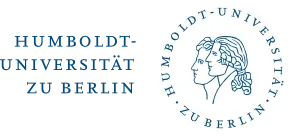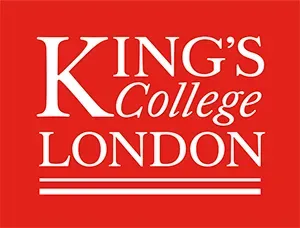The Anthropocene, the Age of Humans, has been proposed as name for the geological epoch or event we are now entering. Anthropogenic climate change affects the atmosphere, the cryosphere, the oceans, the lakes and the loss of biodiversity as reported by the IPCC Reports 2021-23 (AR6), indicating a new relationship between humans and nature. It has deep impact on how we need to reconsider society, politics, and the human being in the face of climate tipping points and the accelerating polycrisis of the 21st century.
The disruption of democratic values in the West requires a rethinking of responses to the climate crisis. This represents an interdisciplinary challenge for virtually all disciplines, from biology, chemistry, hydrology and geosciences to anthropology, philosophy, theology, history, sociology, literature, religious studies, and psychology. Digital presentations from renown experts at four European universities and lectures, group work etc. in Oslo will provide an opportunity to understand and delve into the transdisciplinary ecological challenges raised in the Anthropocene.
The course includes ecological fieldwork in the Oslofjord and excursion with boat trip to an island/peninsula where we will learn about regenerative biology, political controversies and the “more-than-human” world. Social events such as dinner, sauna (possibly even fjord swimming) and visits to the rich cultural and natural environment (Munch, opera, theatre, galleries, spectacular views) are also available during the one-week intensive learning week in Oslo.
Learning outcome
Knowledge
- to get an overview of key debates on ecology within the natural, social and human sciences.
- to interpret texts on interdisciplinary ecology in a critical, constructive, and academically informed manner, both orally and in writing.
- to achieve an overview over and insight into central methodological questions within transdisciplinary ecology and the current debate on the Anthropocene.
Skills
- the ability to acquire and critically engage with new research contributions in the field.
- actively discussing ecological issues in a group and presenting your results orally and visually to a public audience.
General
- participation in the creative research and learning environment, discussing ecological issues with top scholars from various disciplines.
- acquiring a network of established and emerging scholars, as well as erudite and engaged students from all over Europe.
This course is offered on both Bachelor's and Master's level. The Master's level syllabus will be more comprehensive than that of the Bachelor's level, and a higher level of knowledge and reflection will be expected from the Master students at the oral group exam, compared to the Bachelor's level students. The suggested level for Bachelor’s students is during the final semester of their Bachelor's program, typically in the 5th or 6th semester.
Teaching
The teaching consists of online lectures, onsite lectures, and seminars. Participants are expected to attend the online lectures in transdisciplinary ecology including lectures in biology, geology, philosophy, theology, anthropology, law, medicine, and psychology, and attend the one-week intensive course at the University of Oslo.
The seminars will give more profound understanding of the texts and key concepts within each discipline, as well as transdisciplinary challenges. The working method requires active participation from the students.
Lectures and seminars
Dates for the online lectures:
- 9, 16 and 23 September
- 7, 14, 21 and 28 October
All the online lectures are held from 14:15 to 16:00 CET.
- 9 September: Democracy and Interdisciplinary Ecology in Times of Polycrisis
Prof. Marius T. Mjaaland, Environmental Philosophy, University of Oslo - 16 September: Being Human in Gaia 2.0
Prof. Eva Horn, University of Vienna - 23 September: Situated Modelling: generating predictive knowledge in the Anthropocene
Prof. Tobias Krüger, Humboldt University of Berlin - 7 October: Reawakening of Pantheism in the Antropocene
Prof. Lars Albinus, The Study of Religion, University of Aarhus - 14 October: Redefining the Anthropocene
Prof. Michael Wagreich, Geology and ESS, University of Vienna - 21 October: Governance for 'Unpleasant Surprises in the Greenhouse' – What is needed, possible, urgent?
Dr. Manjana Milkoreit, Environmental Politics, University of Oslo - 28 October: Envirotech histories, usable pasts and the Anthropocene
Prof. Timothy Moss, Environmental History, Humboldt University of Berlin
- 10 November: The Anthropocene as Event: Geology, Deep Time, and the Crisis of Democracy, Marius T. Mjaaland (Eco-Philosophy)
- 11 November: Tipping Points in Climate and Nature, Dag Hessen (Biology). Field Work in the Oslo fjord: Why and how seas are dying.
- 12 November: How do we study the Anthropocene in practice? Nils Bubandt (Social Anthropology). Fieldwork, patches and more-than-human relations
- 13 November: Crisis and Sustainability: The Politics of Time in the Anthropocene, Helge Jordheim (Environmental History).
- 14 November: Seizing the Anthropocene Moment: Panel Discussion, Politics and Media Communication
Mandatory activities
- 2 written assignments (500 words each).
- Attendance at the 5-day program scheduled to take place in Oslo from 10–14 November 2025, is mandatory.
- Active participation in group activities during the program in Oslo is expected.
Examination
- Oral group presentation. Ca. 30-45 minutes in groups of 6-8 students.
- The exam assignment will be given on November 10 and the oral presentation held on Friday November 14, 2025.
- The exam is graded with a pass/fail grade.
- The presentation must be held in English.
- It is not possible to resit the exam in another semester.
Travel grants
The course is organized as a blended intensive program (BIP) within Erasmus+, and hence you may apply for a grant at your home university. Please contact the mobility office at your university for more information.
- Aarhus University: aarhus@circle-u.eu
- University of Belgrade: Nikola Savic nikola.savic@rect.bg.ac.rs
- Humboldt Universität zu Berlin: berlin@circle-u.eu
- King’s College London: Students are not eligible for Erasmus+ funding, but may have access to internal funding. Please check for funding opportunities or contact the Circle U. Team for more information: circle-u@kcl.ac.uk
- UCLouvain: infocircleu@uclouvain.be
- Université Paris Cité: circleu.iro@u-paris.fr and online at u-paris.fr
- University of Pisa: circleU.erasmus@unipi.it and on our website.
- University of Vienna: circle-u@univie.ac.at









